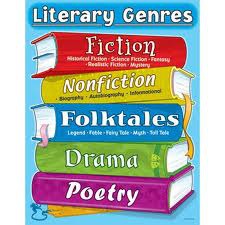|
Beginning of the
lesson
5 min
|
1.Greeting.
Ask about the
weather.
Warm-up
• With books closed, write literature on the board. Ask
students what they think it means. Ask: Are all novels
literature?
• Encourage them to come to a conclusion by themselves. You
might want to tell them literature often refers to books in which
the writing is considered
superior.
• In pairs, students make a list of all the genres of books
they can remember. Set a time
limit.
• Ask a pair to read their list out and ask other students to
add to it
Lead – In

|
The wish
flower” method helps to start the
lesson with good wishes to each
other.
The
aim: To develop Ss speaking skills
and create friendly atmosphere
Efficiency: By telling the wishes they
show their appreciations .
Students express
their ideas
|
At the organization
moment T tries to award active Ss.
«The
praise» method is used to evaluate Ss
with phrases like:
“Good job!
Well done!”
 
Good job!
|
Pictures
PPT
|
|
Middle of the
lesson
Presentation
part.
35 min
|
Ex:1
P:56
•
In pairs, students make a list
of all the genres of books they can remember. Set a time
limit.
•
Ask a pair to read their list
out and ask other students to add to it
Differentiation:
«Verbal
support»
method is
used to help Students use new words in the
text.
Ex: 2
P:56
•
Ask a few students about the
books they like to read. Ask: What genre is it? Then ask for more
details. When was it written? If students say it was written a few
years ago, tell them it is a contemporary novel. Ask: Who tells the
story? Does the writer use I (the first person) or do they talk
about the main character as he / she (the third
person)?
•
Continue to ask questions
about the theme, building up a description of the book, until you
can produce a description such as It’s a contemporary novel about
teenagers, written in the first person
Ex: 3
P:56
• Draw students’ attention to the book covers in the quiz. In
pairs and without reading the texts, students decide what the
genres are from the cover photos.
• Invite students to
give their answers to the class and explain why they came up with
their description.
|
Students in pairs, make a list of
all the genres of books you know.
ANSWERS:
adventure story, romance,
horror, science-fiction, mystery, crime, humorous, thriller,
poetry, drama
Students
put the words in order to make complex noun
phrases to describe books
ANSWERS:
1 nineteenth century romantic
poetry
2 historical drama about social
injustice
3 romantic novel told in the third
person
4 twentieth century adventure story from an animal’s point
of view
5 nineteenth century gothic novel told in the first
person
Students read the literary
extracts . Then match them with the descriptions in exercise
2
ANSWERS:
A nineteenth century romantic
poetry
B historical drama about social
injustice
C romantic novel told in the third
person
D twentieth century adventure story from an animal’s point
of view
E nineteenth century
gothic novel narrated in the first person
|
Assessment
criteria
-
Learn how to make compound nouns to describe
literary genres.
Descriptor:
- make a list of all the genres of books you
know.
Assessment
criteria:
-
Practice using complex compound nouns to
describe books.
Descriptor:
-
put the words in order to make complex noun
phrases to describe books
-Make CCQ
questions
Yes /
No
|

Cards
Student’s
book
Worksheet
Student’s
book
|





















